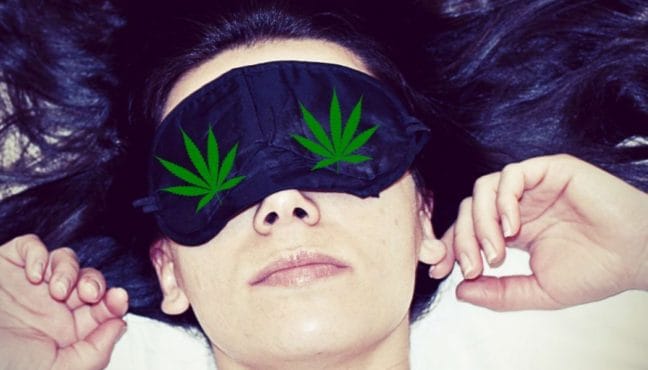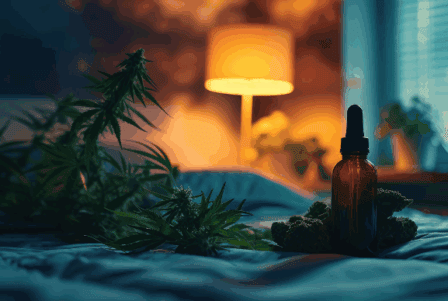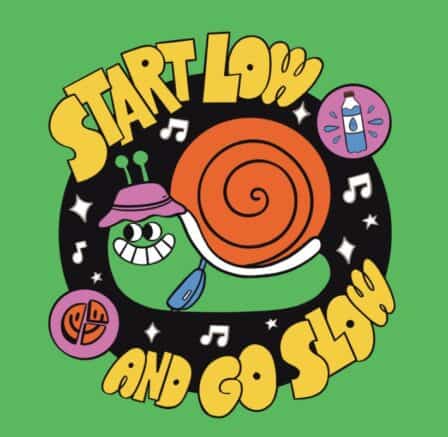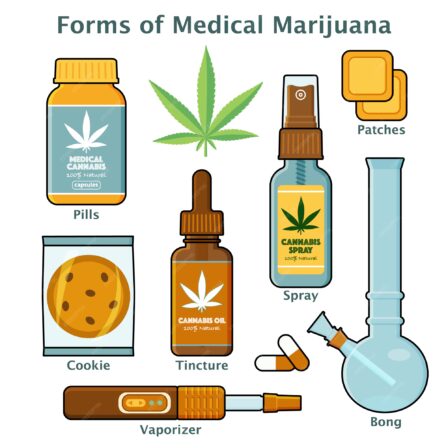Here's a synthesis of the latest research on when and how to use CBD vs THC for sleep-related problems.
The Big Picture: What Does the Latest Research Say?
Overall, research suggests that cannabis compounds can be helpful for sleep. Still, the effects are highly dependent on the individual, the type of product, the ratio of cannabinoids, and the specific sleep problem.
THC: Shows more direct sedative effects but carries risks like tolerance, dependency, and potential disruption of sleep architecture (reducing REM sleep).
CBD: Appears to influence sleep more indirectly by reducing anxiety and pain, which are common culprits of insomnia. It's generally not sedating at lower doses and may even be mildly alerting. Higher doses may promote sleep.
Part 1: When to Take CBD or THC for Sleep
This depends on your primary sleep issue.
For Difficulty Falling Asleep (Sleep Onset Insomnia)
Timing: Take a product 30-60 minutes before your intended bedtime. This allows time for it to be absorbed and take effect. Edibles will be on the longer end of this range.
Rationale: The goal is to have the calming or sedative effects peak as you are trying to fall asleep.
For Difficulty Staying Asleep (Sleep Maintenance Insomnia)
Timing: This is more complex. A product with a longer duration of action is needed.
Rationale: Edibles or tinctures/oils may be more effective than inhalation (smoking/vaping) because their effects last longer. However, timing is crucial to avoid feeling groggy in the morning. Research is exploring sustained-release formulations in CBD vs THC for sleep, but they are not yet widely available.
For Sleep Problems Linked to Anxiety, Pain, or PTSD
Timing: This may involve a two-pronged approach:
1. Lower doses during the day: A small dose of CBD (or a low-dose, high-CBD ratio product) during the day may help manage underlying anxiety or pain, preventing it from escalating at night.
2. A higher dose at bedtime: A larger dose at night can address the acute sleep issue.
Rationale: By managing the root cause (anxiety, pain) throughout the 24-hour cycle, the pressure on the nighttime dose is reduced.

Part 2: How to Take CBD or THC for Sleep (Dosage, Ratios, and Products)
This is the most critical and personalized part of the equation. The mantra "Start Low and Go Slow" is the gold standard.
1. Cannabinoid Ratio: THC vs CBD for Insomnia
The ratio is often more important than the individual components.
THC-Dominant Products:
Best for: Those who have tried CBD without success, or who need strong sedative effects (e.g., for chemo-related insomnia).
Risk: Higher potential for next-day grogginess ("hangover"), tolerance, and paradoxical anxiety at high doses.
Latest Research Insight: While effective short-term, long-term use of high-THC for sleep may lead to tolerance, meaning you need more to get the same effect, and may worsen sleep if you stop.
CBD-Dominant Products (with little to no THC):
Best for: Sleep issues driven by anxiety, stress, or pain. Ideal for those insomniacs who want to avoid psychoactive effects.
Latest Research Insight: CBD is not a direct sedative. Its primary sleep benefit is its anxiolytic (anti-anxiety) effect. It may help regulate the sleep-wake cycle over time.
Balanced THC: CBD Products (e.g., 1:1, 2:1 CBD: THC):
Considered the "Sweet Spot" by many clinicians. The CBD can modulate the psychoactive and anxiety-inducing effects of THC, creating a more balanced, relaxed state conducive to sleep.
Latest Research Insight: This combination may exhibit the "entourage effect," where the two compounds work synergistically to provide greater therapeutic benefit with fewer side effects than THC alone.

2. Dosage: The "Start Low and Go Slow" Principle
There is no universal dose. Individual biochemistry varies wildly.
CBD for Sleep:
Start with 15-25 mg about an hour before bed.
Go Slow: If ineffective after a few nights, increase by 10-15 mg increments every few nights until you find relief. Doses for sleep often range from 40 mg to 160 mg in studies, but many individuals find lower doses to be effective.
THC for Sleep:
Start with a very low dose: 1-2.5 mg of THC.
Go Slow: This is crucial to avoid adverse side effects. Increase by no more than 1-2.5 mg every few nights. A typical sleep dose is 5-10 mg, but some are very sensitive. Indica may be more sedative than sativa.

3. Product Type (Delivery Method)
This affects both the speed and duration of its effects.
| Method | Onset of Effects | Duration | Pros & Cons for Sleep |
| Oils/Tinctures | 15-45 minutes | 4-6 hours | Good balance. Faster than edibles, longer-lasting than vaping. Easy to titrate dose. Place under the tongue for 60-90 seconds. |
| Edibles/Capsules | 45-90 minutes | 6-8 hours | Best for staying asleep. Long-lasting effects. Harder to titrate—start with a very low dose as effects can be strong. |
| Vaping/Smoking | 1-5 minutes | 2-3 hours | Best for falling asleep fast. The effects wear off quickly, which may not help with staying asleep, and inhalation poses health risks. |
| Flower | 1-5 minutes | 2-3 hours | Allows for custom ratios (e.g., mixing high-CBD and high-THC flower). Inhalation risks remain. |

4. Key Takeaways from the Latest Research & Clinical Advice
1. Target the Cause: Is your insomnia primary, or is it secondary to anxiety, pain, or PTSD? The answer should guide your choice between CBD vs THC for sleep.
2. The Entourage Effect is Key: Combining CBD and THC (e.g., a 1:1 ratio) is often more effective and better tolerated than THC alone for sleep.
3. Low Doses are Often Effective: More is not always better. Microdosing THC (1-5 mg) can be very effective without significant side effects or next-day impairment.
4. Tolerance is a Real Concern with THC: Using THC every night can lead to needing higher doses for the same effect. Some clinicians recommend using it only 3-4 nights a week or taking periodic "tolerance breaks."
5. Quality Matters: The market is poorly regulated. Find products from reputable companies that can provide you with third-party lab reports (Certificates of Analysis) that confirm potency and test for contaminants like pesticides and heavy metals.
6. Research alternatives for insomnia other than THC or CBD. There is a litany of sound practices for sleeping short of CBD or THC. Many of these may be used before starting cannabis use, or in conjunction with it, depending on results.
5. The Bottom Line
The latest research is shifting away from relying solely on high-THC "sledgehammer" for sleep. The modern approach is more strategic:
> Use the lowest effective dose of a balanced CBD: THC product, taken about an hour before bedtime, with a focus on treating the underlying cause of the sleep disturbance (like anxiety) rather than just the symptom of insomnia itself.
Keeping a sleep journal to track your product, dose, timing, and sleep quality can be beneficial for both you and your doctor in determining what works best for you.
Important Disclaimer
This information is for educational purposes only. Always consult with a healthcare professional before starting any new supplement or medication. This action is especially true if you have underlying health conditions or are taking other medications. Cannabis laws vary by location.

